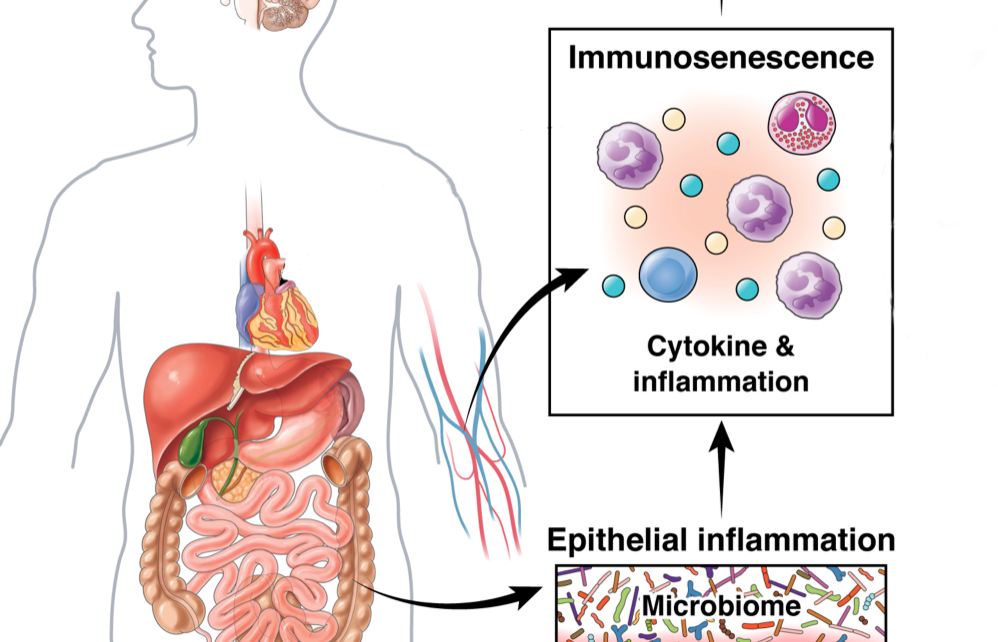Ever had a “gut-wrenching” experience? Felt “butterflies” in your stomach before a big date? These aren’t just clever turns of phrase. They’re literal, physical sensations hinting at one of the most fascinating discoveries in modern health science: the profound, two-way conversation between your gut and your brain.
Honestly, we’ve all been there. You feel stressed, and suddenly your stomach is in knots. Or you eat something that doesn’t agree with you, and your mood plummets. This isn’t a coincidence. It’s biology. And understanding this gut-brain axis could be the key to unlocking better mental well-being.
Your Gut: The Unlikely Nerve Center
Let’s be clear, your gut isn’t doing conscious thinking. But it is a massive network of neurons—often called the “second brain” or the enteric nervous system. This complex system is in constant, direct communication with the brain in your head via a superhighway known as the vagus nerve.
Think of it like a busy customer service line that never closes. Messages are flying back and forth 24/7. And the main customer service representatives in this scenario? Trillions of microbes—your gut microbiome.
The Microbiome’s Mighty Role in Mental Health
So, what exactly is the gut microbiome? Well, it’s the vast community of bacteria, viruses, and fungi living in your digestive tract. And a healthy, diverse microbiome is crucial. These tiny tenants do more than just digest food. They’re prolific chemical factories, producing a staggering array of neurotransmitters and other compounds that directly affect your brain.
Chemical Messengers: More Than Just Digestion
Here’s the deal: your gut bacteria are responsible for producing about 90% of your body’s serotonin—the famous “feel-good” neurotransmitter that helps regulate mood, sleep, and appetite. They also produce GABA, a calming neurotransmitter that helps put the brakes on anxiety.
When your gut microbiome is out of balance—a state called dysbiosis—this production line can get messy. The signals going up the vagus nerve can become distorted, contributing to feelings of anxiety, low mood, or brain fog. It’s like static on the customer service line; the message gets through, but it’s garbled and unhelpful.
Signs Your Gut-Brain Axis Might Be Out of Whack
How do you know if this connection is affecting you? The signs are often clearer than you’d think. It’s not just one thing, but a constellation of symptoms.
- You experience bloating, gas, or irregular bowel movements, especially when stressed.
- You have intense sugar cravings that feel almost uncontrollable.
- You feel persistently fatigued, even after a full night’s sleep.
- Your mood feels low, or you’re more anxious than usual, with no clear external trigger.
- You struggle with “brain fog”—difficulty concentrating or remembering things.
Sound familiar? You’re not alone. In our high-stress, processed-food world, this delicate system is under constant assault.
Healing the Line: Practical Steps to Support the Gut-Brain Axis
The good news is you’re not powerless. You can actively nurture this connection. It’s about making consistent, small choices that add up. Think of it as tending a garden—you can’t just plant seeds and walk away. You have to water them, give them good soil, and pull the weeds.
1. Feed Your Microbes, Not Just Your Cravings
Your gut bacteria love fiber, specifically prebiotic fiber. This is their favorite food. By feeding them well, you encourage the growth of beneficial species. Focus on getting a wide variety of plants into your diet. Aim for different colored vegetables, legumes, whole grains, nuts, and seeds. Every color represents a different type of phytonutrient, which is like a superfood for your microbes.
2. Embrace Fermented Foods
This is about adding in beneficial bacteria directly. Incorporate fermented foods like:
- Yogurt and kefir (look for “live and active cultures”)
- Sauerkraut and kimchi (unpasteurized)
- Kombucha (watch the sugar content)
- Miso
You don’t need a huge amount. A small serving each day can make a significant difference over time.
3. Manage Stress, for Your Gut’s Sake
Chronic stress is like kryptonite for a healthy gut. It can weaken the gut lining and alter the microbiome composition. Find what works for you to dial down the stress response. It could be a daily 10-minute walk, meditation, deep breathing exercises, or even just putting your phone away for an hour. This isn’t fluffy self-help; it’s a biological necessity for gut health.
4. Prioritize Sleep
Poor sleep doesn’t just make you groggy. It disrupts your gut microbiome, which in turn can make it harder to sleep—a vicious cycle. Aim for 7-9 hours of quality sleep per night. It’s one of the most powerful, and often overlooked, tools for healing your gut and calming your mind.
A Quick Guide to Gut-Friendly Foods
| Food Type | Examples | Why It Helps |
| Prebiotics | Garlic, onions, leeks, asparagus, bananas, oats | Feeds the good bacteria already in your gut. |
| Probiotics | Yogurt, kefir, sauerkraut, kimchi, miso | Introduces new, beneficial strains of bacteria. |
| Polyphenol-Rich | Berries, dark chocolate, green tea, olives | Acts as an antioxidant and supports microbial diversity. |
| Fiber Powerhouses | Lentils, chickpeas, avocados, chia seeds, broccoli | Promotes healthy digestion and regular bowel movements. |
The Future is Internal
We’re really just at the beginning of understanding this intricate relationship. The research into psychobiotics—specific probiotics with mental health benefits—is exploding. It points toward a future where supporting mental wellness is as much about what we put on our plate as it is about what we talk about on the therapist’s couch.
So the next time you feel a pang of anxiety or a dip in your mood, maybe pause for a moment. Ask yourself: what has my gut been telling me lately? The answer might be more profound than you think. It’s not about finding a single magic bullet, but about rebuilding a relationship—the one between your head and your gut—from the ground up.




